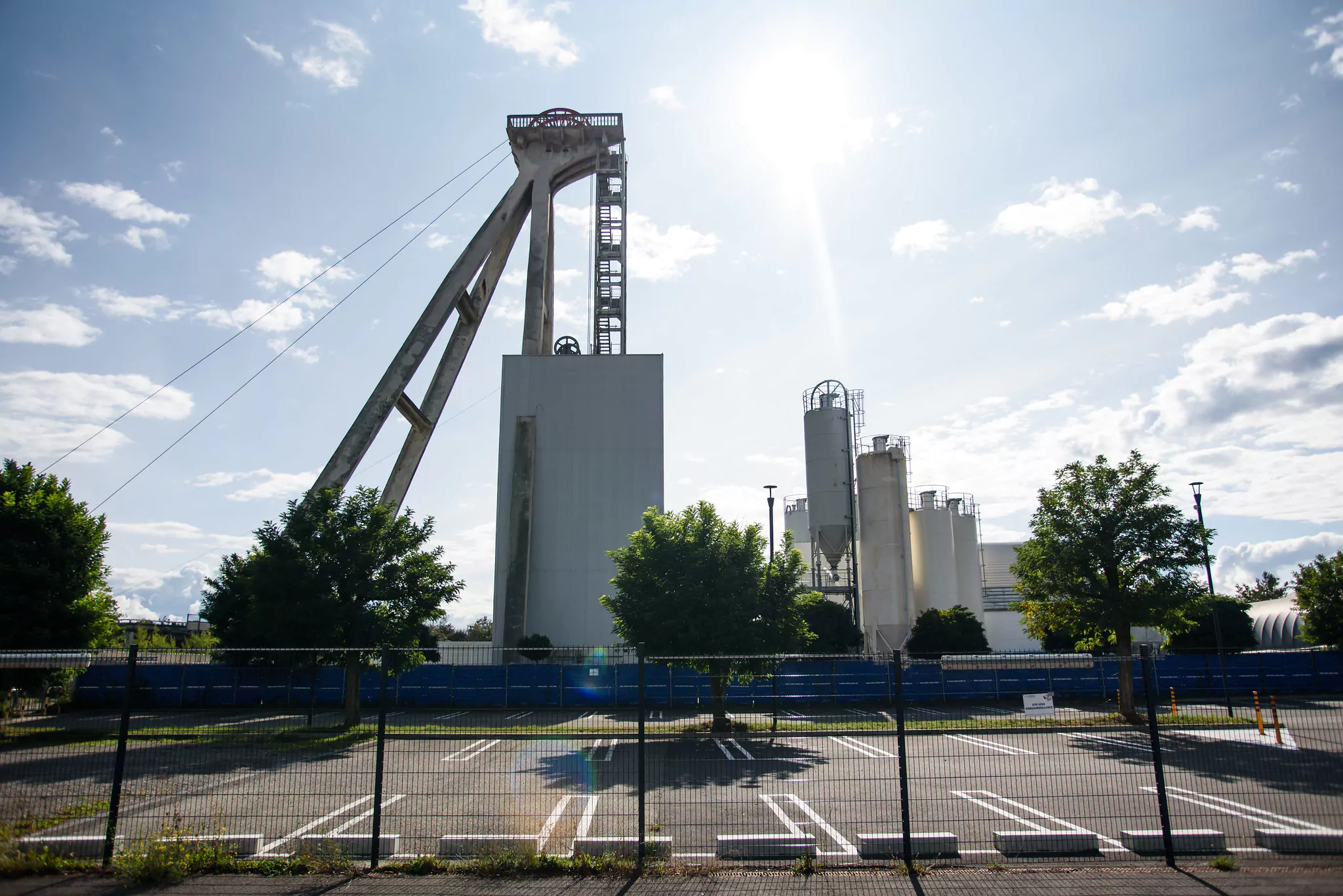It was supposed to be a temporary solution: stuff 42,000 tonnes of toxic waste into an old potash mine near the French town of Wittelsheim until a better way to deal with it comes along.
Twenty years later, the Stocamine storage facility in France’s northeastern Alsace region is set to become a permanent threat to Europe’s biggest aquifer, which stretches under the ground as far as Mainz in Germany and Basel in Switzerland.
Buried 500 metres beneath the mine is a cocktail of asbestos, mercury, chromium, nickel, arsenic and other dangerous industrial materials. This investigation raises alarming questions about the legality of the waste stored there and its long-term impact on the environment.
The cross-border project, spearheaded by journalist Thibault Vetter of French local investigative outlet Rue89 Strasbourg in collaboration with Bärbel Nückles from Badische Zeitung in Germany, scrutinised a thousand-page judicial file concerning a 2002 fire at the Stocamine facility.
The goal was to expose the irregularities, environmental hazards and corporate manipulation surrounding the facility, with a focus on holding decision-makers accountable for their actions.
Key findings include:
The Stocamine waste facility knowingly accepted and stored dangerous material that blatantly contravened established regulations and safety standards.
French waste group Séché Environnement, a major shareholder in Stocamine, exerted significant pressure, compelling the facility to store and manage illegal waste, prioritising corporate interests over environmental compliance.
Despite glaring irregularities, the investigative team uncovered evidence that some workers within the facility raised the alarm about the influx of illegal waste. However, relentless pressure from Stocamine’s management resulted in the continuation of this environmentally hazardous practice.
While Stocamine’s director faced legal consequences for negligence, the Séché group managed to evade any form of responsibility for knowingly dispatching irregular and hazardous waste material.

‘Possibility of a disaster’
The investigation revealed that the French state, ostensibly committed to environmental stewardship, initially supported a study on destocking at Stocamine.
However, when it became apparent that two of the selected researchers advocated for destocking, the government abruptly withdrew its support, raising questions about the depth of political interference.
Meanwhile, a confidential document came to light, revealing the French state’s foreknowledge of “the possibility of a disaster” concerning Alsace’s groundwater.
This revelation underscored the government’s awareness of the severe contamination risks to one of Western Europe’s most significant groundwater reserves.
Beyond the initial findings, the investigative team conducted an in-depth inventory of the illegal waste stored in the facility.
The comprehensive analysis provided a nuanced understanding of how corporate interests, specifically those of the Séché group, exploited their shareholder influence to facilitate the storage of irregular wastes beneath Alsace’s groundwater.
Lawsuits and police inquiries
As a direct outcome of the investigation, an environmental group initiated legal proceedings. One lawsuit led to the start of a police inquiry, signalling a potential shift towards accountability.
Information brought to light by the investigation became a rallying point for activists during demonstrations against the state’s decisions regarding the Stocamine waste facility.
The team’s published findings compelled the government to publicly acknowledge the environmental risks it was exposing Alsace’s groundwater to, suggesting a reevaluation of its stance.
The investigation played a key role in a decision by the administrative justice system to suspend the government’s authorisation for leaving the waste underground. The arguments presented in the articles became central to the administrative decision.
The ongoing police inquiry, a direct consequence of the publications, significantly influenced the judge’s motivation to prevent the continuation of the state’s project.
By publishing the findings in both French and German media, the team pushed the Stocamine issue onto the international stage. An impending resolution vote in the French-German assembly signifies the growing recognition of the issue among politicians.
The investigation not only brought to light the environmental and corporate malpractices at the waste storage facility but also catalysed legal actions, public mobilisation and international attention.
See the stories below.
